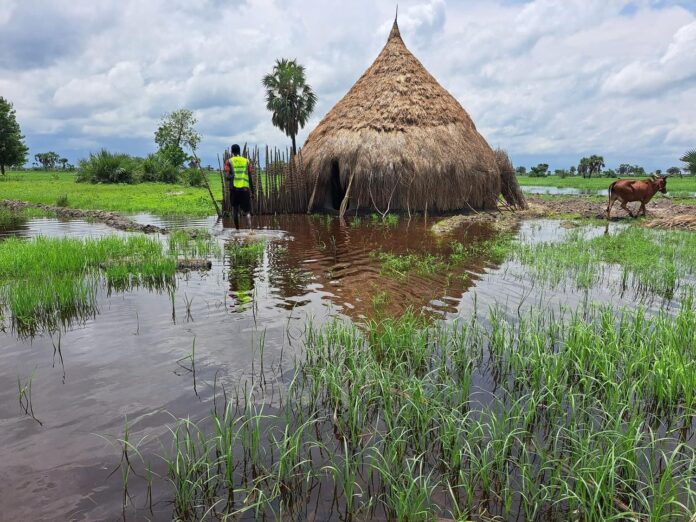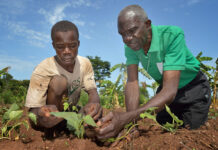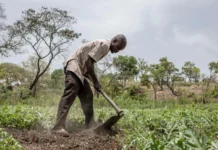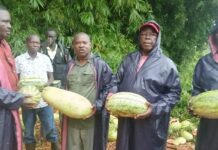Farmers in Southern Unity mainly Leer, Mayendit and Payinjiar are hopeless to defeat hunger as floods destroyed their crops half ways before being matured. Those communities, like many others in the country, depends entirely on agriculture. Their lives, their hopes, and their future are intricately tied to the rhythms of the seasons and the bounty of their fields.
One of the farmers in Leer, James Chuol said he cultivated maize, sorghum, and vegetable crops but flooding destroyed them that created worried to his family
This year, however, Chuol said it might be worsening due to predicted rainfall and many farmers will face an unprecedented catastrophe. The rainy season, which usually brings life and sustenance to their crops, transformed into a deluge of destruction. Torrential rains battered the region for weeks, and the White Nile, swollen beyond its banks, surged across the landscape, engulfing everything in its path.
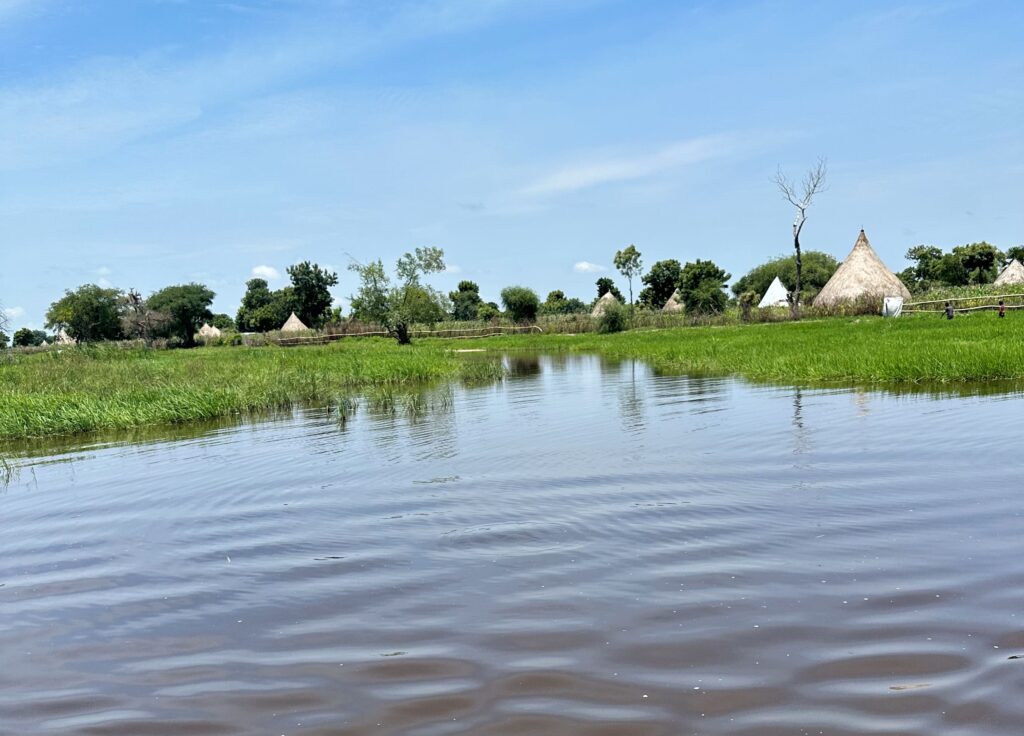
Another farmer George Tut from Leer town has created an alternative to prevent small water volume through dike that surrounded the all garden. He said sometime a heavy rain could left him helplessly as the waters rose, creeping closer to his fields.
The crops, nearly ready for harvest, stood no chance against the onslaught. Within days, the carefully tended rows of maize and sorghum lay submerged under a vast, murky expanse. The floodwaters, relentless and unforgiving, swept away not just the plants but the promise of food and income for the coming year.
Leer, Mayendit and Payinjiar became a desolate landscape, its once-vibrant fields transformed into a watery graveyard of dreams. George, along with many others, sought refuge on higher ground, but the devastation was inescapable. Homes were lost, livestock drowned, and the very soil that provided their sustenance was washed away.
The community, already fragile from years of conflict and hardship, now faced an uncertain future. Aid organizations arrived, bringing food and temporary shelter, but the road to recovery seemed daunting. The farmers in Southern unity who had always relied on their own resilience, now grappled with a new reality.
The Director of Agriculture n Leer County Simon Liah Kuon said government is working closely with farmers to get training about crops they can plant early before flood intensified. He argued that lack of seeds remains a challenge that affected the early plantation and some farmers also do not have known to plant new crops. He expresses needs to train farmers on techniques to plant resilience crops that can not be much affected by flooding.


